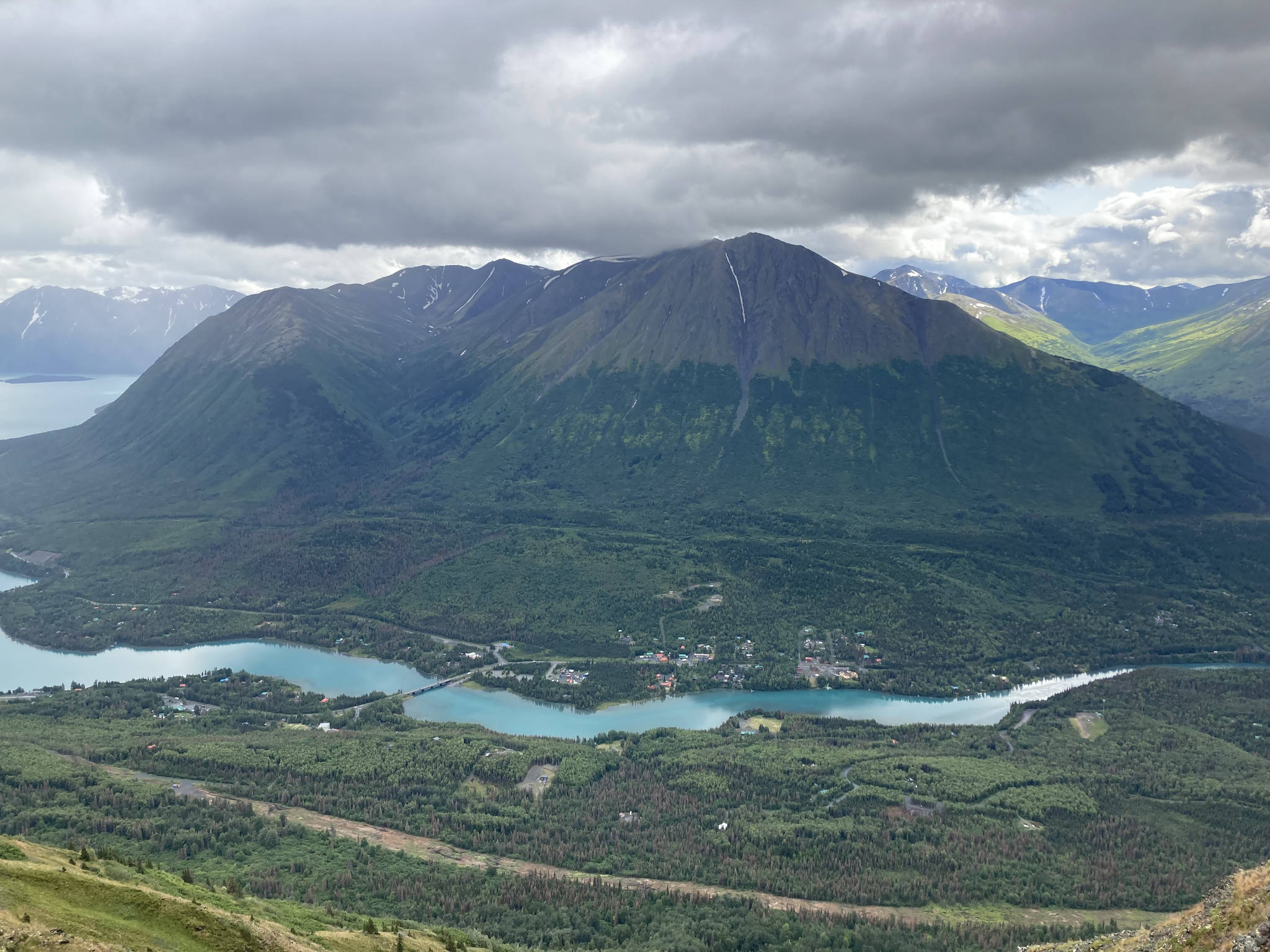A new phase of the Cooper Landing Bypass Project announced last week will push back completion of the project by two years.
During a virtual presentation last week, project leads provided updates on the effort — also known as the Sterling Highway MP 45-60 project — to reduce congestion on the Sterling Highway through Cooper Landing and to improve highway safety.
The project is divided into phases, with a new phase announced as part of the update. The new phase pushes back final completion from 2025 to 2027. During the presentation, the project leads said the initial part of the first phase of construction is looking to wrap up by winter.
Upon completion, the bypass will add 10 miles of road starting at about Milepost 46.5 off the Sterling Highway and will cross Juneau Creek via a steel arch bridge before rejoining the highway around Milepost 56.
Summer work was mainly concentrated on Phase 1A, or the project’s west end, from Milepost 56 to 58. That phase, when completed, will feature vehicle pullouts and wildlife crossings, as well as erosion control work along the road. Edith McKee of HDR — the company contracted for design work — said that one of those wildlife crossings is expected to be completed this year, but that construction of the phase is not expected to be completed until 2022. When completed, Phase 1A will feature 12-foot lanes and 8-foot shoulders.
At the project’s other end, construction isn’t expected to begin until 2023. That section, Phase 1B, is on the east end from Milepost 45 to 47, and will be where the old and new Sterling Highways intersect. The section will include a westbound and an eastbound passing lane, as well as a pedestrian undercrossing and bike path, according to the update.
Upcoming work on the project includes a fine-tune of the design of the steel arch bridge over the Juneau Creek Canyon, which is the project’s largest endeavor. Some of the construction that happened over the summer included creating access to where the bridge will cross on either side of the canyon, though the bridge by itself is expected to take three years to complete.
“The bridge is a critical scheduling factor for the rest of the project,” said HDR Public Involvement Lead Katherine Wood.
More details were also shared about what the substantial portion of the project — the bypass — will actually look like. The new alignment will veer away from the Kenai River and will have a posted speed limit of 55 miles per hour — that’s higher than the existing roadway, where speeds slow throughout Cooper Landing.
Other project elements include a new trailhead and parking area for the Resurrection Pass Trail. The new lot will also provide access to the pedestrian and equestrian trail that will run alongside the new highway. The Bean Creek Trail will be extended to cross under the bridge and a new pullout will provide access to the trail. The Slaughter Gulch Trail Fork will be removed and a new piece of trail will connect the northern and southern sections of the eastern fork.
Project leads said firewood from summer construction should be available this fall, with updates to be shared via email, and that drivers should continue to use road conditions apps. Alaskanavigator.org is updated weekly and can be used to check construction status. 511.alaska.gov shows road conditions, including traffic and road closures.
A virtual open house for the Cooper Landing Bypass Project will be available until Sept. 5 and can be accessed at sterlinghighwayonline.net.
Reach reporter Ashlyn O’Hara at ashlyn.ohara@peninsulaclarion.com.

